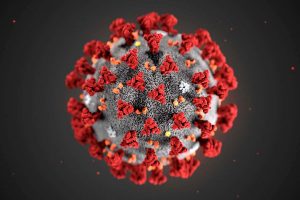Found in 25% of healthy pregnant women, group B streptococcus – commonly known as group B strep (GBS) – is a bacterial infection that can spread to the baby during vaginal delivery. Mediclinic gynaecologists share some insights.
In the myriad of tests expectant mothers undergo, your doctor may suggest taking a swab to check for GBS. If present, it could cause serious infection in a baby, particularly if born vaginally.
Because of previous cost-benefit analyses done on the need for screening, some doctors may only do the test when certain risk factors are present which include:
- preterm rupture of membranes in the current pregnancy
- previous preterm deliveries
- previous stillbirths
- previous incidence of strep b infection in a mother or her baby
- a temperature of over 38 degrees
‘GBS is an infection commonly found in the human body and usually does not cause symptoms,’ explains Dr Joshua Matambo, a gynaecologist and obstetrician at Mediclinic Newcastle. ‘However, in pregnant women GBS can harm both the expectant mother and the newborn.’
GBS can be found in the intestines, rectum or vagina, adds Dr Mpati Kalane, a gynaecologist and obstetrician at Mediclinic Bloemfontein.
Potential complications
Dr Matambo says GBS infection can potentially cause the following
complications in expectant mothers and their babies:
Mother:
- Chorioamnionitis: an inflammation of the foetal membranes often associated with prolonged labour (https://www.ncbi.nlm.nih.gov/pmc/articles/PMC3008318/)
- Premature labour
- Premature delivery
- Bladder infections
Baby:
‘Not all babies whose mothers carry GBS get the infection,’ says Dr Matambo. ‘But if babies do get it they can be born prematurely and may require a prolonged stay in the ICU. Other possible complications include neonatal sepsis, pneumonia and meningitis. Meningitis may also lead to deafness, blindness, learning difficulties and even death in severe cases.’ Dr Kalane adds that respiratory distress, feeding problems and lethargy can also result.
Testing
‘If screening is considered, it is best done between 35 and 37 weeks of pregnancy and requires taking a vaginal and a rectal swab,’ says Dr Kalane. ‘It’s an uncomfortable but otherwise painless test.’ The swab is then sent to the laboratory, where the bacterium may be identified.
The importance of antibiotic treatment
If a GBS infection is confirmed, antibiotics are prescribed to avoid any complications. ‘The mainstay of treatment is a high dose of penicillin antibiotics, which prevents mother-to-child transmission of GBS,’ says Dr Matambo. ‘This simple treatment will prevent complications for both the mother and baby, saving the baby from any potential harm.’
Patients should alert the doctor if they’ve had an adverse reaction to penicillin in the past, which could mean they have a penicillin allergy. There would then be alternative treatment options available depending on the culture of the organism.
‘The paediatrician should be notified if the screening is positive and if there are risk factors, so they can screen the baby and treat prophylactically (preventatively) in high-risk cases,’ adds Dr Kalane. In cases where complications have arisen, surgical intervention may be required.
According to Medpage Today, there has been progress in the development of a GBS vaccine to prevent transmission from mother to newborn. Trials show that it is ‘generally safe and somewhat effective’.
Posted on 17 August 2017 by Mediclinic – Full source credit: https://www.mediclinicinfohub.co.za/group-b-strep-pregnancy/

